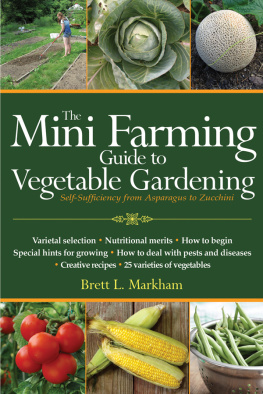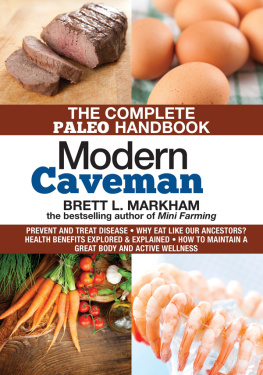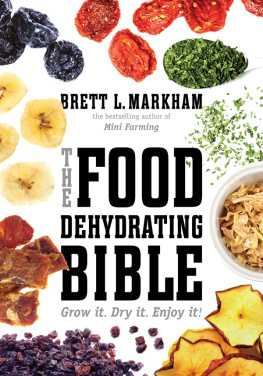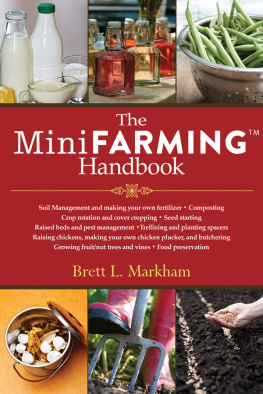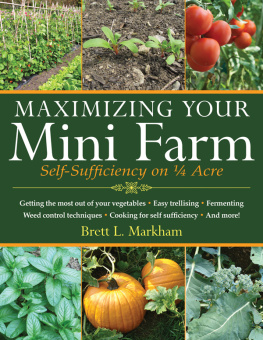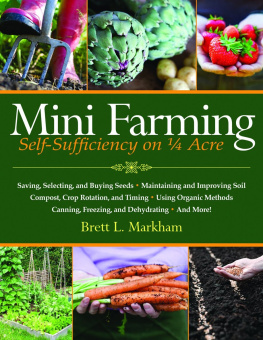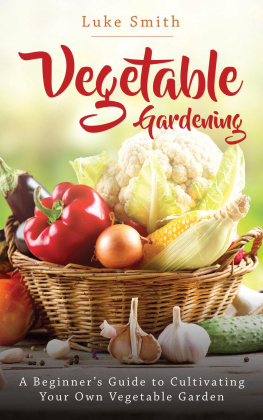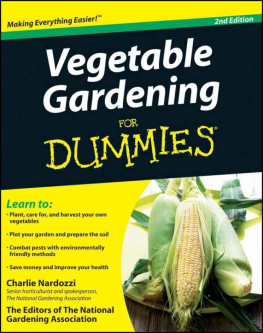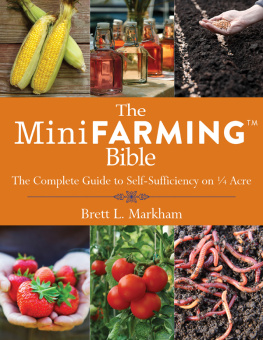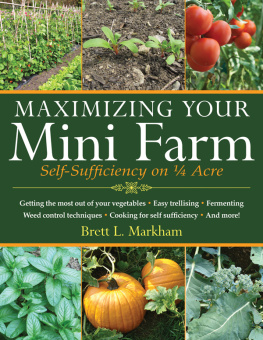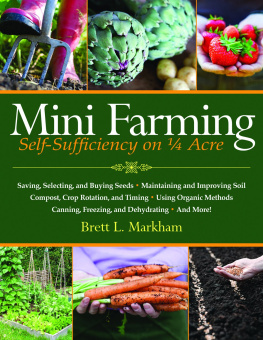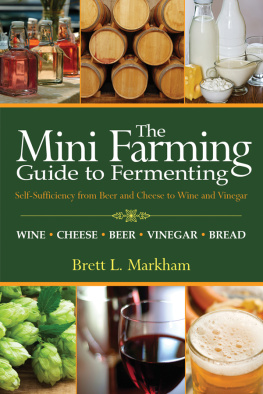
The Mini Farming
Guide to Vegetable
Gardening
Self-Sufficiency from Asparagus to Zucchini
Brett L. Markham

Skyhorse Publishing
Copyright 2012 by Brett L. Markham
All Rights Reserved. No part of this book may be reproduced in any manner without the express written consent of the publisher, except in the case of brief excerpts in critical reviews or articles. All inquiries should be addressed to Skyhorse Publishing, 307 West 36th Street, 11th Floor, New York, NY 10018.
Skyhorse Publishing books may be purchased in bulk at special discounts for sales promotion, corporate gifts, fund-raising, or educational purposes. Special editions can also be created to specifications. For details, contact the Special Sales Department, Skyhorse Publishing, 307 West 36th Street, 11th Floor, New York, NY 10018 or .
Skyhorse and Skyhorse Publishing are registered trademarks of Skyhorse Publishing, Inc., a Delaware corporation.
Visit our website at www.skyhorsepublishing.com
10 9 8 7 6 5 4 3 2 1
Library of Congress Cataloging-in-Publication Data is available on file.
ISBN: 978-1-61608-615-2
Printed in China
Contents
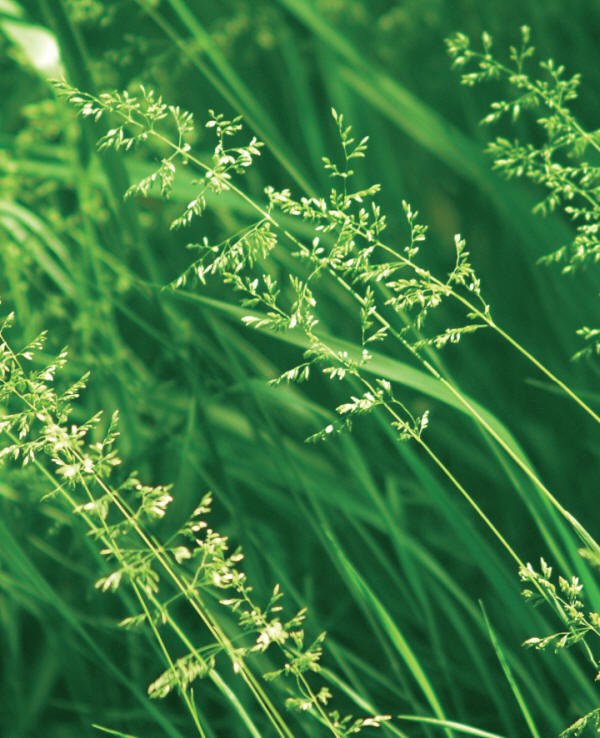
Acknowledgments
and Dedication
When you work a full-time job doing something other than writing, the time you do spend writing necessarily takes away from other activities. And those other activities usually involve other people: friends, family, colleagues, and loved ones who sacrifice access to your time and attention so you can write. Too many people to list have sacrificed so that I could write, so here I would like to acknowledge my thanks and appreciation to each and every one of them for their kindness and forbearance.
I have also received a lot of encouragement from a diverse group of people who would certainly seem strange bedfellows at first glance, but beneath the surface share important commonalities. I have received encouragement from people interested in self-sufficiency, people concerned about the environment and peak oil, nutrition activists, permaculturists, political activists encompassing everything from anarchists and libertarians to the far right and more. In the long run, all human life starts from the soil, so it isnt surprising that such a diverse group of sincerely caring people, despite superficial differences, would share a common understanding of the importance of our bond to the soil and the value of food self-sufficiency. I appreciate all of the encouragement I have received from all of these fine people.
Skyhorse Publishing took a big financial risk in putting my ideas to print. Printing books is an expensive enterprise, and the risk of holding untold numbers of unwanted books is quite real. You can go to many job-lot type stores and find tens of thousands of unsold books marked down to under a dollarwell under the cost of printingjust to get rid of them. It is easy to forget, looking at the phenomenal success that Mini Farming has become, that publishing it in the first place was to some extent an act of faith in an unproven author. And to some degree, Skyhorses willingness to publish this book as well is a risk. Though I realize it is a risk that holds the potential for the company to more than recoup its investments, I am nevertheless appreciative of the fact Skyhorse continues to publish my work, and especially for the fact the company gives me carte blanche without trying to micromanage my subject matter.
There are many more people I could and perhaps should acknowledge for the role they play or have played in making this book and my others possible. No man is an island, and to varying degrees we all reflect the influences of others in our lives. But because this is a down-and-dirty, nuts-and-bolts book aimed not at the theory of mini farming but at its actual practice, I would like to dedicate this book to a very special group of people: Those Who Do.
Foreword:
Why Grow Your Own Vegetables?
According to an article in the Journal of the American Medical Association, medical errors are the third leading cause of death in the United States. Deaths result from unnecessary surgery, dose-dependent adverse drug reactions, superbug infections, and more. So even though I am not a medical doctor, I believe I am sufficiently qualified to reiterate our mothers collective wisdom that we ought to eat our vegetables, if for no other reason than to prevent as much contact as possible with the medical community.
There is no dietary component with a greater effect than vegetables. The more vegetables in your diet, the longer and more healthy your life, and the fewer the vegetables in your diet, the shorter and less healthy your life. Its really that simple. Study after study demonstrates that vegetables contain hundreds of important compounds to fight or prevent practically all chronic diseases, and links vegetable consumption with lower incidence of disease even in cases in which other adverse lifestyle practices are present.
Unfortunately, it isnt that simple in daily practice for two reasons. Vegetables are expensive because they are labor-intensive to produce, and quite often they are tasteless or downright unappealing when available because of the results of modern agricultural practices.
At first glance, fresh (or at least not cooked) vegetables dont look that expensive. You can get broccoli florets for $4 per pound, cabbage for $3 per head, and tomatoes for $1.69 each. These prices dont look so bad until you realize just how many vegetables you should be eating.
Even when the USDA nutritional guidelines were five half-cup servings (about two pounds) of vegetables daily, fewer than 10 percent of Americans consumed that many vegetables. In addition, those guidelines are based upon the USDA recommended daily allowance (RDA) for various nutrients. The RDA for nutrients is sufficient to avoid obvious symptoms of deficiency, but according to many researchers and scientists, is insufficient to convey optimal health or prevent chronic diseases.
Though it is possible to augment nutrient intake with vitamin pills, it is widely recognized that vitamin pills are inferior to food sources because foods convey the vitamins along with a wide array of other nutrients that cant be duplicated in a pill. These other nutrients augment the effects of the vitamins and also provide their own unique benefits. In order to obtain a level of nutrients for optimal health, youd have to eat ten half-cup servings of a variety of fruits and vegetables daily. This amounts to four pounds of vegetables.
If you have four people in your family and each requires a modest three pounds a day of vegetables, that comes out to twelve pounds a day or eighty-four pounds a week. Even at $4 a pound for conventionally farmed produce, that creates a $336/week grocery bill for vegetables alone. This is one reason why nutritional levels are so bad in poorer communities and why even middle-class Americans consume vegetables more as an afterthought or as an adjunct than as a primary food source. Vegetables are nutrient-dense, but they are not calorie-dense. Calorie for calorie, vegetables are substantially more expensive than other common foods.
Compare, for example, sirloin steak at $7 per pound and 74 calories per ounce to cabbage at $1.69 per pound and 6.4 calories per ounce. With steak you get 168 calories per dollar, whereas with cabbage you get 60 calories per dollar. Steak and cabbage are both healthful foods, but matters get even worse when comparing unhealthful foods such as candy or snack chips to vegetables. A 3 1/4-ounce package of a popular candy costs only 89 cents but packs 240 calories, providing 270 calories per dollar. This comparative cost per calorie is one reason why vegetables provide fewer than 10 percent of the calories in the average Americans diet. Even though organic vegetables are more healthful and tasty for a variety of reasons, they are even less likely to provide many calories in the average diet because they are more expensive than conventional vegetables on a per-calorie basis.
Next page
